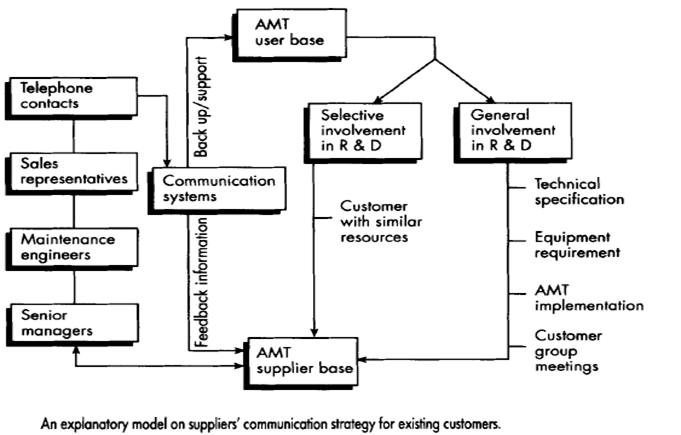The Power Of Communications In Customer-supplier Chains
Introduction:
Communication can be characterized by suppliers’ breadth of knowledge and their level of understanding of customer requirements. This is usually a two stream process, as good communications generally mean that a large amount of useful and beneficial information is fed back to the supplier. Communication processes can be simplistic or complex. Most of the information and facts can be relayed back by personal contacts.
An explanatory model on suppliers’ communication strategy for existing customers:

- This model resulted from a research project conducted by the author, on the implementation of Advanced Manufacturing Technology (AMT).
- The communication systems box depends on a variety of inputs coming from the customer, the relationship itself and the various people who represent the personal contacts (the link) between suppliers and customers.
- The level of complexity of the communication process is closely determined by the degree of customer/supplier involvement and the level of sharing of information, resources and knowledge.
This research project has established that personal contacts are a key determinant in establishing strong communication processes.46 Personal contacts was found by other research to play a major role in bringing organisations closer together and in channeling information from and to their organisations. Most of the information and facts can be relayed back by personal contacts.
The importance of personal contacts in establishing strong customer-supplier chains has been referred to as the ‘lifeblood’ of customer-supplier chains concluded that:
’Personal contacts are the vehicle of communication, not only of factual information but ideas, impressions, attitudes, commitment, integrity, and sometimes of commercial or technical information provided only to he trusted and privileged.’